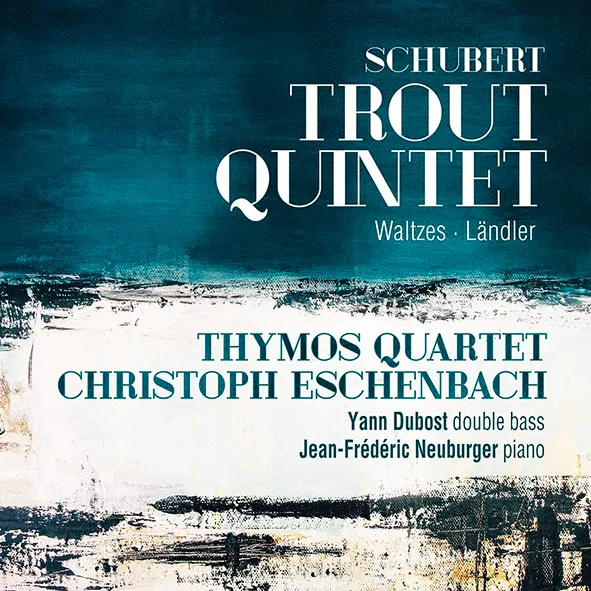
Dejours • Schubert Schubert: Piano Quintet in A major, D667 'The Trout'*; Landler** – D366 Nos 12 & 15; D790 Nos 5, 7, 8, 10 & 12; Olivier Dejours: Schubertiade Yann Dubost, *Christoph Eschenbach, **Jean-Frederic Neuberger (piano); Thymos Quartet, Yann Dubost (double bass) Avie AV2416 54:31 mins
The 22-year-old Schubert’s pen was blessed when he wrote this insouciant, elegant Quintet, the double bass an unusual addition to the standard string quartet.
In this delightful recording, the limelight is shared between Eschenbach’s crystalline piano playing and the creamy string sound, underpinned by the rumbling, bouncing bass. The tempo is elastic, yielding. And there’s no rigid ensemble, either; the mood is convivial, like conversing friends who occasionally interrupt each other. Eschenbach’s solo moments have memorable rhetorical swagger.
But there is also incredible detail. Every semiquaver is accorded a characteristic edge, the audible action of bow on hair, or hammer on string. Schubert’s miraculous harmonic corners are turned with subtlety, new keys almost teasingly introduced with stealthy, vibrato-free sound. The string ensemble chords sound organ-like, a lovely contrast to their tremulously lyrical solo lines.
The second movement Andante is sexily silken, recorded so intimately we can hear the performers’ breaths. The Scherzo sandwiches an irresistibly smooth filling between its exuberant outer sections. The famous ‘Trout’ Variations are so jaunty and sunny, I couldn’t stop smiling. The closing mock-pompous march reveals a slyly teasing humour lost in stricter performances.
I welcomed the inclusion of charming arrangements of Schubert’s waltzes and a selection of Ländler (the latter somewhat heavily rendered by Jean-Frédéric Neuburger); this is music for unselfconscious pleasure, transparent but never facile, born of the interior world of domestic music-making, in which the subtle details, which would be lost on a larger canvas, can be enjoyed up close.
Natasha Loges